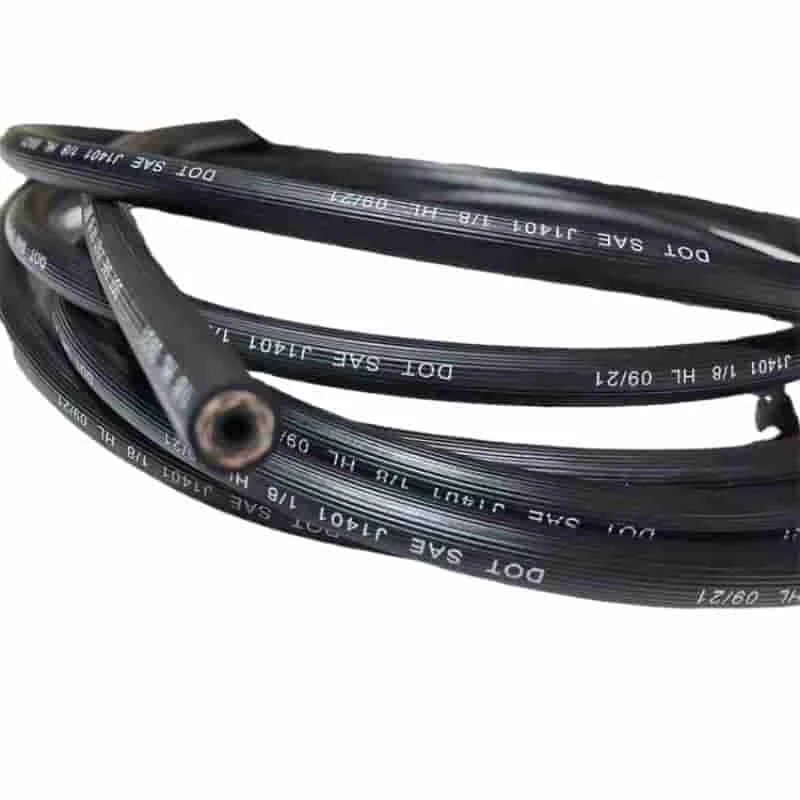Fuel Line Specifications for Diesel Engines and Performance Optimization
Dec . 10, 2024 20:20 Back to list
Fuel Line Specifications for Diesel Engines and Performance Optimization
Understanding Diesel Rated Fuel Lines Their Importance in Diesel Engines
Diesel engines are renowned for their efficiency, durability, and ability to produce high torque at lower RPMs compared to their gasoline counterparts. One critical aspect that contributes to the reliable performance of diesel engines is the fuel delivery system, particularly the diesel rated fuel lines. These fuel lines are integral to ensuring that diesel fuel is transported from the tank to the engine in a manner that supports optimal performance and safety.
What Are Diesel Rated Fuel Lines?
Diesel rated fuel lines are specially designed tubes or hoses that transport diesel fuel from the fuel tank to the injection system. Unlike regular fuel lines, these lines must withstand higher pressure and harsh chemical properties associated with diesel fuel. They are typically constructed from materials that resist abrasion, corrosion, and degradation to ensure longevity and reliability under the demanding conditions in which they operate.
Material and Construction Standards
The materials used to manufacture diesel rated fuel lines must adhere to strict industry standards. Common materials include high-density polyethylene (HDPE), thermoplastic elastomers (TPE), and reinforced rubber. These materials are chosen for their ability to handle the high pressure often found in diesel systems, as well as their resistance to the fuel’s corrosive properties.
Furthermore, diesel rated fuel lines are often tested against various environmental factors such as temperature extremes, mechanical stress, and exposure to chemicals
. Such rigorous testing ensures that these fuel lines will function effectively for extended periods, minimizing the risks of leaks, bursts, or fuel contamination.Importance of Proper Sizing and Fitting
To achieve optimal performance, it is crucial that diesel rated fuel lines are correctly sized and fitted for the specific application. Using improper sizing can lead to several problems including inadequate fuel flow, increased pressure drop, and excessive strain on the engine's fuel system. It’s essential for technicians and engineers to understand the engine’s requirements and specifications when selecting and installing fuel lines.
diesel rated fuel line

Additionally, proper fittings and connections must be utilized to prevent leaks and ensure a secure seal. Diesel fuel is not only hazardous due to its flammability, but leaks can also lead to contamination of surrounding components, which may result in costly repairs and downtime.
Role in Diesel Engine Performance
The efficiency and reliability of a diesel engine heavily depend on the capability of its fuel delivery system. Diesel rated fuel lines play a pivotal role in maintaining efficient fuel flow, which in turn affects combustion quality and engine performance. Poor fuel delivery can lead to incomplete combustion, which can cause increased emissions, decreased power output, and reduced overall efficiency.
Furthermore, the integrity of these lines is vital for maintaining the proper pressure within the fuel injection system. Diesel engines operate on a high-pressure injection system, which means that any compromise in the fuel line could result in inadequate fuel being delivered to the injectors. This can lead to performance issues such as hard starting, rough idling, and increased fuel consumption.
Maintenance and Inspection
Routine maintenance and inspection of diesel rated fuel lines are imperative for ensuring consistent performance. During maintenance, technicians should inspect the lines for signs of wear, such as cracks, abrasions, or leaks. Any signs of damage should be addressed immediately to prevent more severe complications down the line.
Furthermore, keeping the fuel lines clean and ensuring that they are free from blockages or contamination is essential. Using fuel filters and maintaining a clean fuel tank can significantly contribute to the longevity of the fuel lines and the overall health of the diesel engine.
Conclusion
In summary, diesel rated fuel lines are an essential component of diesel engines, playing a critical role in the efficient delivery of fuel. Their unique design and construction are tailored to withstand the challenges posed by diesel fuel and high-pressure operation. Proper installation, maintenance, and inspection of these fuel lines are crucial for ensuring optimal engine performance and longevity. Understanding these aspects can help diesel engine users maintain their vehicles and machinery effectively, enhancing both performance and reliability.
